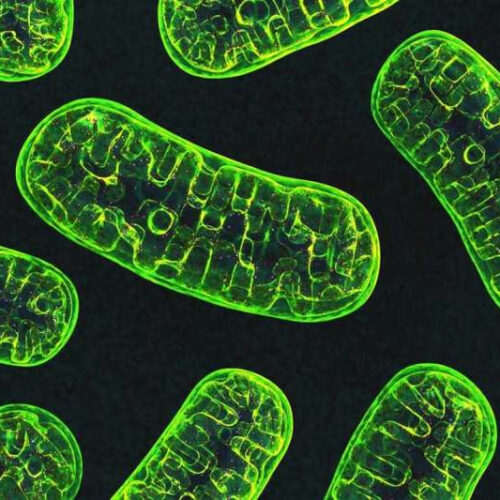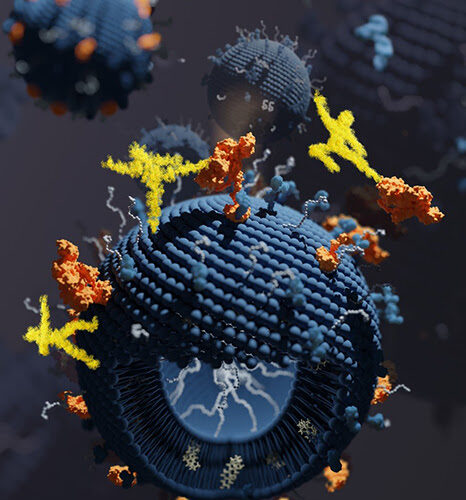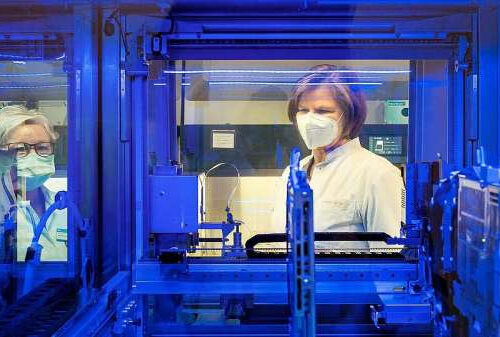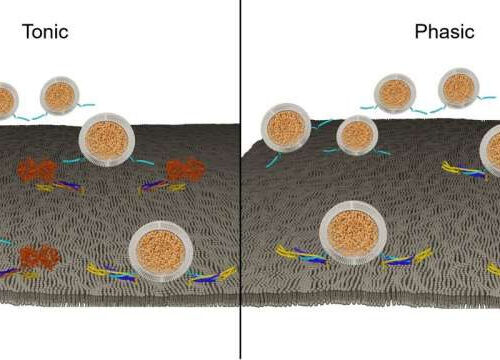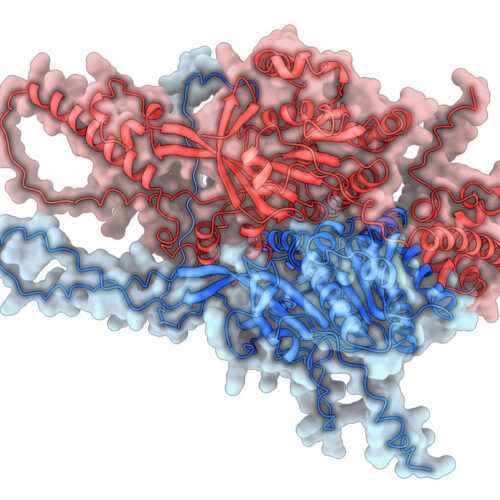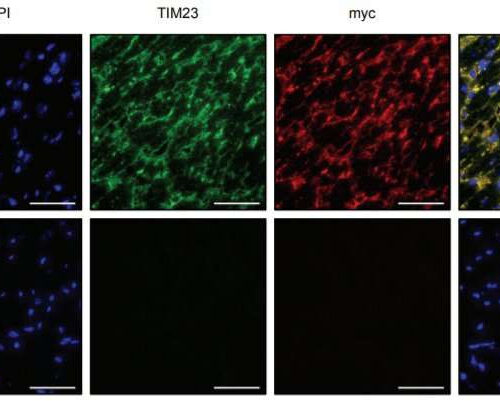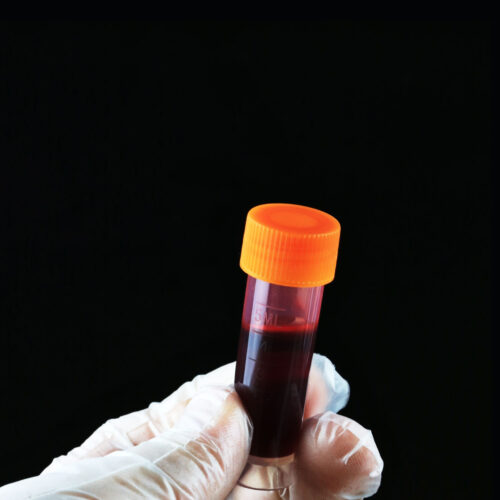by California NanoSystems Institute Disruptions in the fission of mitochondria, the structures within cells that make energy, are behind a host of other ailments, including cancer, diabetes and heart disease. Credit: National Institutes of Health As scientists work toward finding a cure for Parkinson’s disease, one line of research that has emerged focuses on mitochondria,...
Tag: <span>Protein</span>
Protein Coating Protects Nanoparticles from Immune Attack
JANUARY 17TH, 2022 CONN HASTINGS MEDICINE, NANOMEDICINE Researchers at the University of Pennsylvania School of Medicine have created a new coating for nanoparticles that can help to protect them from attacks by the immune system. The approach, which uses naturally occurring proteins that can inhibit the complement system, can significantly reduce immune destruction of nanoparticles, meaning that more...
A Protein Controlled by both Light and Temperature May Open Doors to Understanding Disease-related Cell Signal Pathways
Posted Today Most organisms have proteins that react to light. Even creatures that don’t have eyes or other visual organs use these proteins to regulate many cellular processes, such as transcription, translation, cell growth, and cell survival. The field of optogenetics relies on such proteins to better understand and manipulate these processes. Using lasers and genetically engineered versions...
Parkinson’s protein blueprint could help fast-track new treatments
by Walter and Eliza Hall Institute of Medical Research Credit: Pixabay/CC0 Public Domain Researchers have solved a decade-long mystery about a critical protein linked to Parkinson’s disease that could help to fast-track treatments for the incurable disease. The research, published in Nature, has for the first time produced a ‘live action’ view of the protein, called PINK1,...
A new medication uses protein against SARS-CoV-2
by Technical University Munich Prof. Dr. med. Ulrike Protzer (r), head of the Institute for Virology at the Technical University of Munich and Director at the Helmholtz Munich, with an employee at the PCR analyzer in the Institute for Virology at the TUM university hospital Klinikum rechts der Isar. Credit: Astrid Eckert / TUM Vaccines against...
Deep learning dreams up new protein structures
Just as convincing images of cats can be created using artificial intelligence, new proteins can now be made using similar tools. In a report in Nature, researchers describe the development of a neural network that “hallucinates” proteins with new, stable structures. Proteins, which are string-like molecules found in every cell, spontaneously fold into intricate three-dimensional shapes....
Study reveals a protein’s key contribution to heterogeneity of neurons
by Massachusetts Institute of Technology Above: Round vesicles carrying glutamate seek to dock to the cell membrane by binding to SNARE proteins (blue and yellow). In tonic neurons (left) tomosyn (brown and orange) intercepts the vesicles and binds them instead, preventing docking at the membrane, which is necessary for glutamate release across a synapse. Credit: Littleton...
AI cracks the code of protein complexes—providing a road map for new drug targets
Robert F. Service The artificial intelligence (AI) revolution in protein structure prediction continues. Only 1 year ago, software programs first succeeded in modeling the 3D shapes of individual proteins as accurately as decades-old experimental techniques can determine them. This summer, researchers used those AI programs to assemble a near-complete catalog of human protein structures. Now,...
‘Immortality protein’ within the mitochondria offers protection in myocardial infarction
by Heinrich-Heine University Duesseldorf Mitochondrial TERT is present in heart mitochondria of mitoTERT mice 7 days after myocardial infarction. 7 days after infarction in a mitoTERT animal (mito), a transverse cardiac section was stained for mitochondrially targeted TERT expressed from the knockin into the ROSA26 locus using an anti-myc antibody. Mitochondria were visualized with an...
This Protein Predicts a Brain’s Future After Traumatic Injury
A blood test of A blood test of “NL” proteins answers questions about damage severity that doctors—and families—desperately need. PHOTOGRAPH: DOUGLAS SACHA/GETTY IMAGESNEIL GRAHAM SEES a lot of head injuries: “Car accidents, violence, assault, gunshots, stabbing—the works, really,” says Graham, a neurologist from Imperial College London who practices at St. Mary’s Hospital nearby. Doctors stop the bleeding,...

